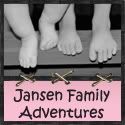 |
| Photo by Ian Britton at FreeFoto.com |
A few days later I pulled the book out and "read" it to her. I translated each page into toddler-speak as we went along, leaving 1-2 new words on each page. I figured a little vocabulary-building couldn't hurt. When we finished, she asked me to read it again. (That's toddler-speak for "I like it!")
As I've written for children and teenagers I've tried to write on their level. I don't want them to need someone to translate or lose interest because they don't understand what I've written. Trying to write on-level, however, brings a couple problems:
- Not all 3-year-olds (or 8-year-olds or 14-year-olds) are on the same level!
- I still think a little vocabulary-building is good.
In 1983 Betty Hart and Todd Risley began a research project that wouldn't be complete and published until 1995. They followed 42 families from upper, middle, lower, and welfare socio-economic levels for several years, recording and transcribing how much the parents talked to their babies. What they discovered was astounding. The average child in an upper socio-economic family heard 2153 words per hour while the average child in a welfare home heard 616 words per hour. By the time a child turns four, that translates to almost 45 million words for the wealthier child and 13 million words for the poorer child.* Even more interesting, the preschooler's vocabulary can be an indicator for how well they will perform in later years. All this by the time they're four!
I've always thought vocabulary-building is good, but this makes me much less timid about introducing new words to kids! Even if they don't know what each word means, it seems that the simple exposure is doing them good! Also, books tend to have more opportunity to use language that isn't common in everyday conversations and speech. It's okay to use complete sentences and appropriate grammar in books where in "real life" it might sound a little formal.
At three-and-a-half years old, my daughter still likes the picture book I mentioned earlier. I haven't translated it for many months. She's probably heard it over 100 times. She still doesn't know what all the words mean, and I am perfectly okay with that.
* Read an NPR article about the research here: http://www.npr.org/2011/01/10/132740565/closing-the-achievement-gap-with-baby-talk. The actual article Hart and Risley published is available here: http://www.elfrank.net/UFT/Articles/early%20catastrophe.pdf.






